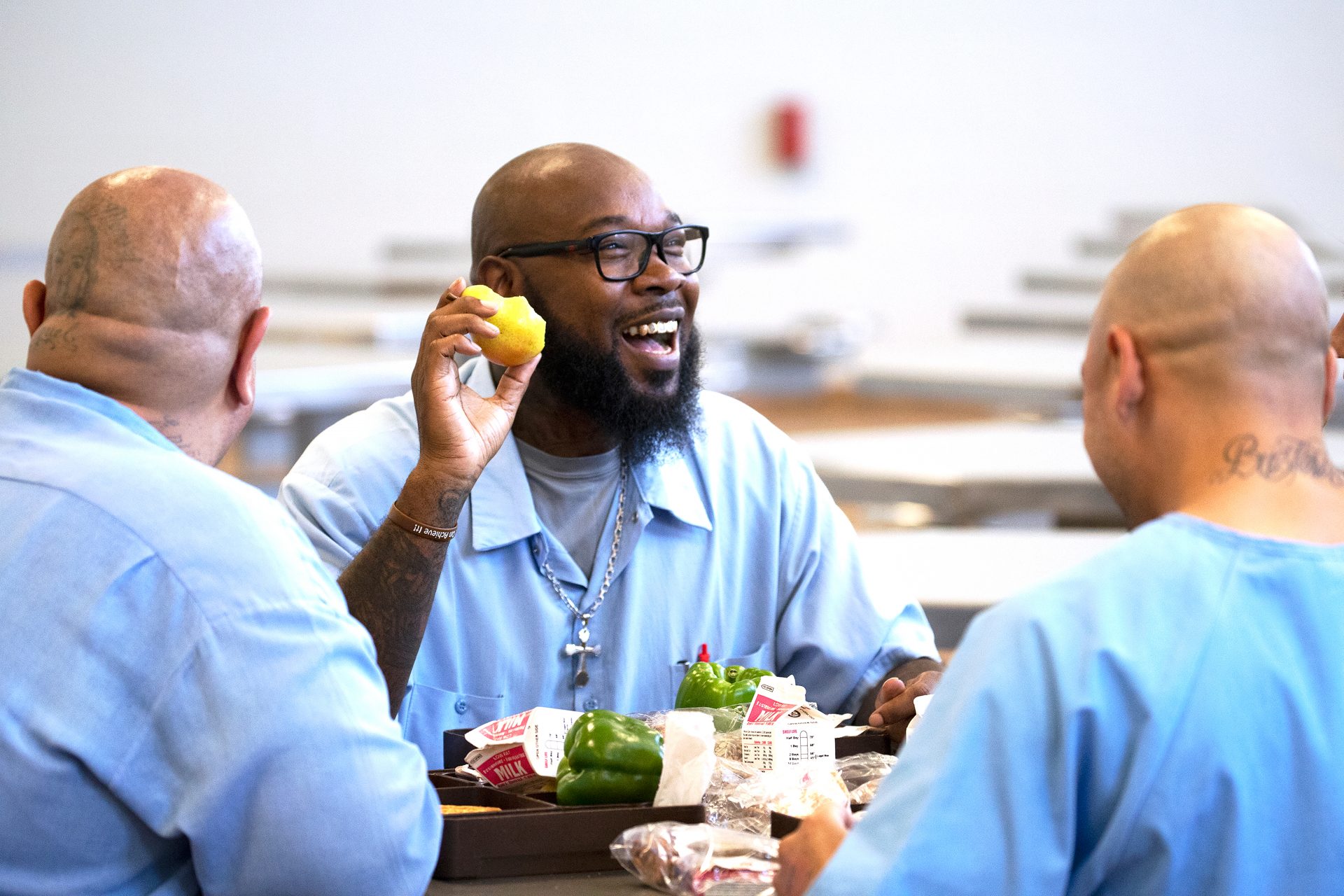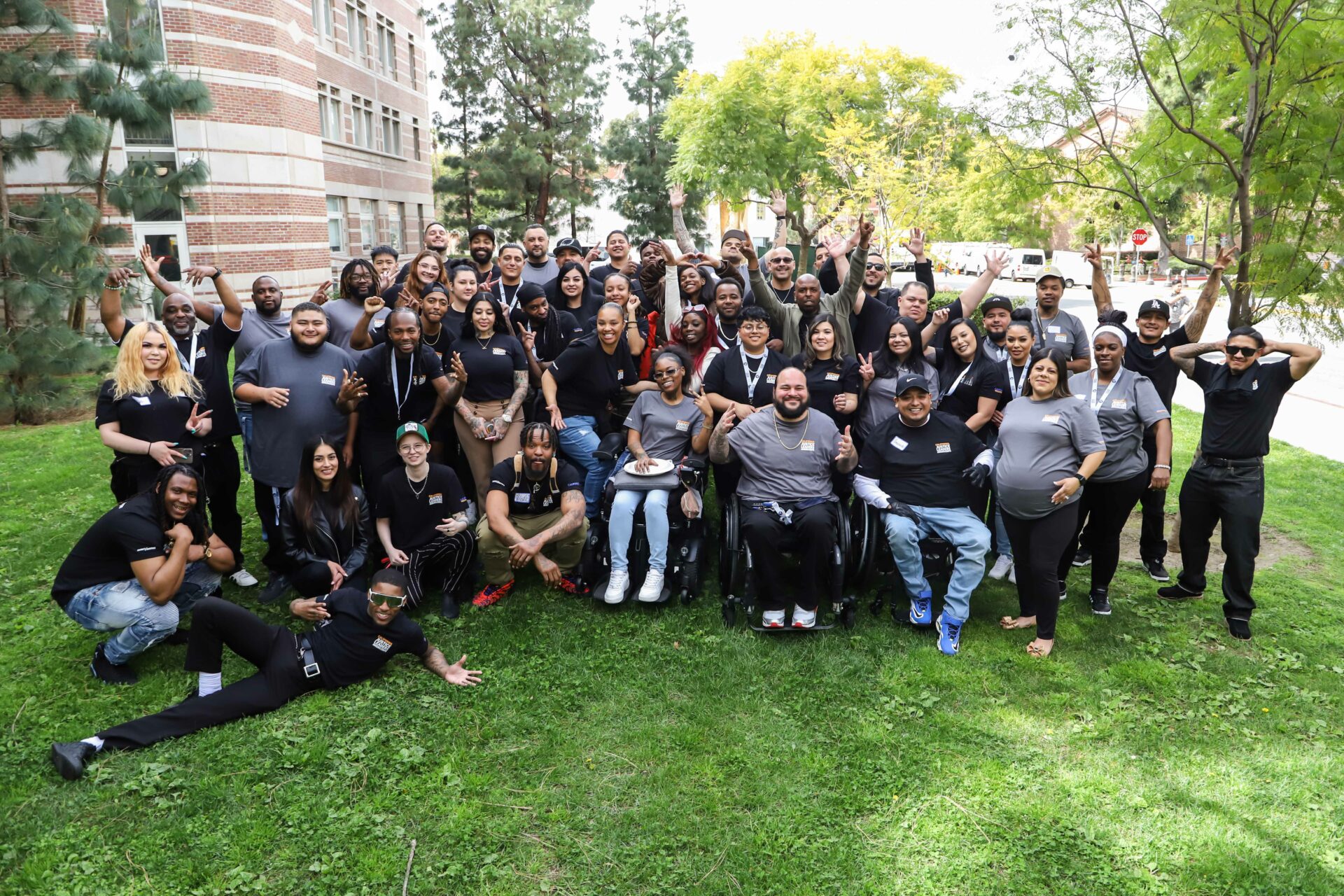Last week, my colleague Heile Gantan was at the state prison in Solano, California, as Spork Food Hub made a delivery of fresh California-grown Bartlett pears, September’s Harvest of the Month. With a huge smile on his face, Solano resident Patrick Range proclaimed it “the best pear I’ve ever eaten.” Such is the joy of simple good food.
I love my local farmers market in early fall, when the last of the summer tomatoes are joined by the first crisp apples, lush kale, and sweet honeynut squash. Yet less than two miles from where I live, residents of the DC Central Detention Facility are receiving trays with meager amounts of highly-processed, poorly-prepared food, as if our region’s farms were not overflowing with the season’s harvest.
Meals in most jails and prisons are a monotony of bland foods that are high in refined carbohydrates, sodium, and sugar and lacking in essential nutrients — a diet that literally makes people sick. Impact Justice documented this nationwide phenomenon in our report Eating Behind Bars: Ending the Hidden Punishment of Food In Prison.
Today, we’re collaborating with an array of partners who understand good food is a foundation for wellbeing and rehabilitation and can reduce tension inside facilities for the benefit of everyone. The Harvest of the Month program is a partnership between the University of California’s Nutrition Policy Institute, the California Department of Corrections and Rehabilitation, Impact Justice, and food distributors like Spork that source food from nearby growers.
The program started with watermelons in July, followed by pluots in August, and pears in September. There will be a delivery of fresh-picked produce every month as the program expands to eventually reach all 33 prisons statewide — work made possible in part by a Specialty Crop Block Grant from the California Department of Food and Agriculture because the program also benefits small-to-midsize California growers.
We’re exploring other farm-to-tray models across the country in New England, work supported in part by a grant from the U.S. Department of Agriculture. And Maine is where we’re developing Chefs In Prisons, a model approach to improving all aspects of correctional food service — from procurement to recipe development to quality culinary training for all incarcerated kitchen workers that not only results in better-prepared food but also opens doors to good jobs after release. We’re thrilled to have professional chef Colin Freeman leading this statewide effort.
Chefs In Prisons is a partnership between Impact Justice and Brigaid, the company Dan Giusti started after his tenure as chef de cuisine at the Michelin-star restaurant Noma. We chose Maine as the pilot site because the state department of corrections already has some exemplary food practices along with visionary leaders who genuinely want to provide nourishing, good-tasting food to every resident, every day.
If you’re thinking this sounds expensive, we have a surprise for you: purchasing from local producers, baking bread on site, and other efforts are already saving money in Maine. Practices such as these, along with composting, also reduces food waste, a huge problem in prisons and jails where the quality of food is so poor that much of it ends up in the trash — as much as 438,000 tons nationally every year by our calculations. We’re grateful to the Posner Foundation of Pittsburgh for recognizing and supporting this aspect of Chefs In Prisons.
Our national view of the problem and solutions positions us to raise public awareness — most recently with our allies at Healthy Acadia during a discussion in Maine hosted by the College of the Atlantic — and to inform policy, including the push here in DC for a “fresh start” to correctional food services that would provide people in jail with fresh, seasonal produce and other foods essential to good health.




